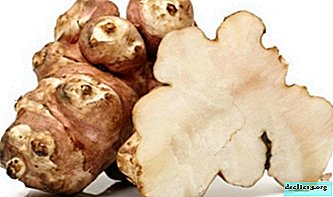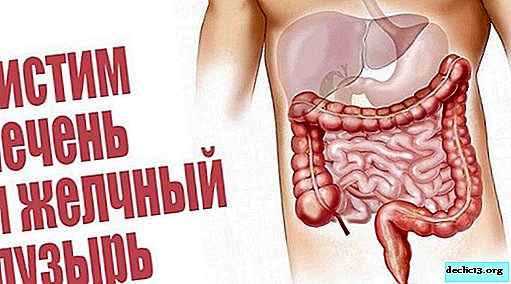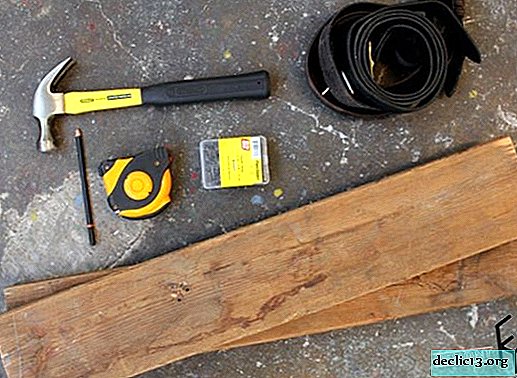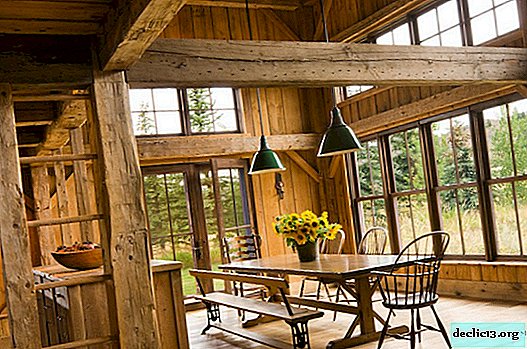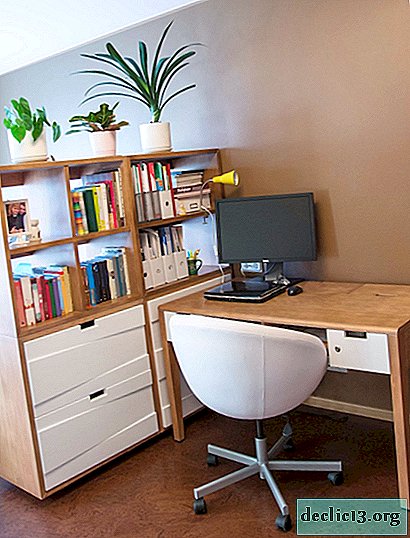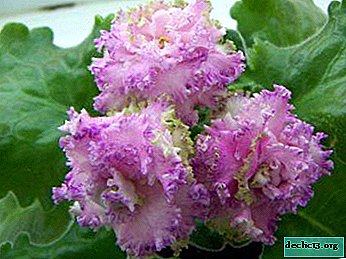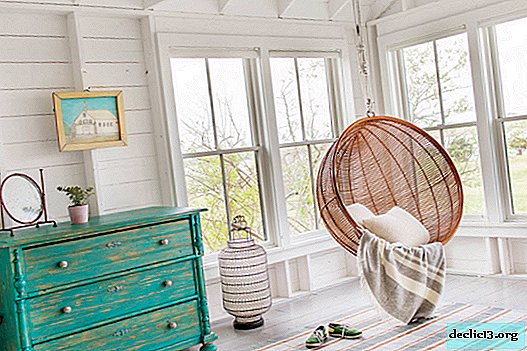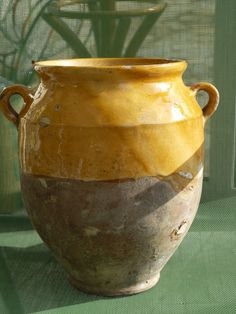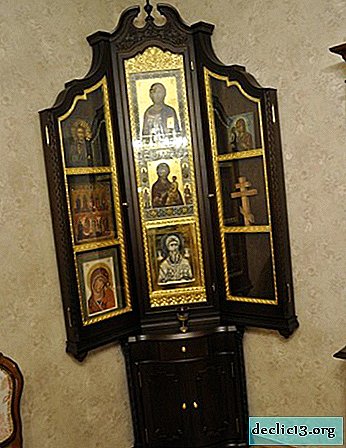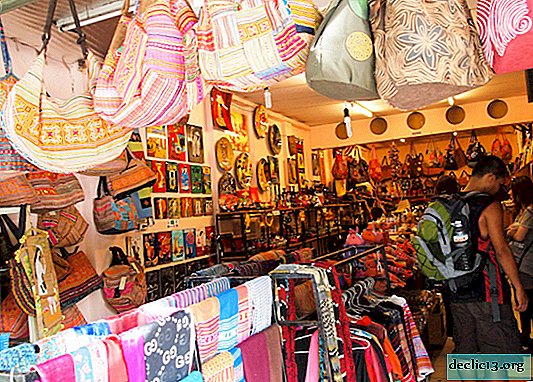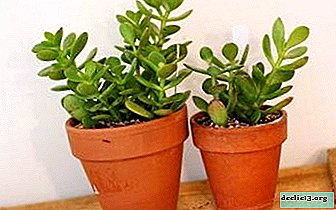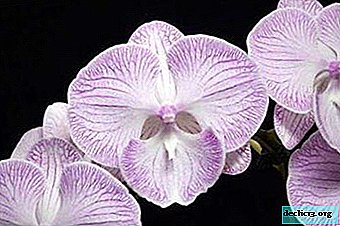Facade of a two-story house - choose the optimal finish
The construction of the building cannot be considered complete without finishing work to protect surfaces from various climatic influences and give the structure a decorative look. If you are planning the construction of a private house, then you probably took into account the style of the facade and the materials necessary for its implementation at the design stage. After all, the choice of facade decoration method directly depends on the execution style of the entire building. But the building, which stood for many years, often needs to be remade its shell - the reconstruction of the facade.
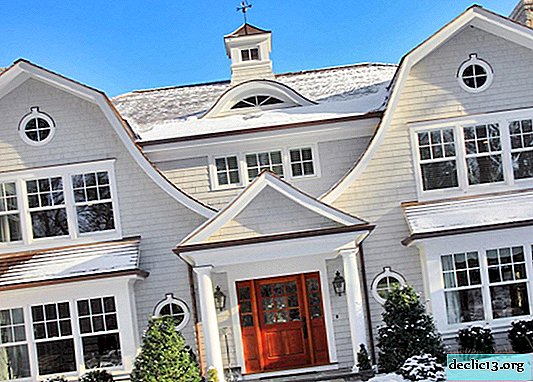

The modern market of finishing materials is full of options for creating not only reliable protection of the building's surfaces from all kinds of natural phenomena, but also giving the structure an attractive appearance. With the help of decoration, you can organically fit your home ownership into the surrounding landscape or vice versa to make an accent spot on the background of nature. You can design a city private house in accordance with neighboring buildings or create a perfect unique, nothing like the design of the exterior image of the building - it all depends on the goals that you set for yourself when planning the facade.


There are many technologies to create a reliable, durable and externally attractive image of the structure. Of course, any finishing technology directly depends on the choice of materials for its creation. A wide selection of finishing materials offers a wide range of options for cost, practicality and speed of installation or cladding. Each homeowner will be able to find his optimal finishing method that will meet technological requirements, the characteristics of the surrounding climate and the size of the budget laid down for the decoration of the facade.


Front materials
Demand creates supply. The desire of homeowners to create a difficult reliable and practical protection for the surfaces of their homes, but also to find original solutions to create a specific image of the building, expand the range of facade materials offered in stores. It is not easy to list all the methods for finishing facades and their combinations, but try to highlight the most common:
- plastering walls with subsequent painting;
- the use of facade panels made of various materials (from porcelain stoneware to reinforced foam);
- decoration with natural or artificial stone;
- staining of masonry or brickwork;
- the use of siding made of plastic, metal or polyvinyl chloride;
- the use of natural wood or its effective imitation - wooden panels, battens, tiles, imitation timber, block house.


Facing panels
Facade panels are widely used in both capital and private construction. There are many options for the execution of panels - these are various types of siding, aluminum, composite, porcelain stoneware and fiber cement panels.


Advantages of using panels for facade decoration:
- ease of installation - the cladding is based on the principle of assembling the designer (in the presence of modest finishing skills and a certain set of tools, you can finish yourself)
- walls receive a sufficiently high level of protection against the effects of various natural manifestations;
- many types of facade panels act as a heater;
- with the help of most finishing panels, you can hide any flaws in the structure - from small cracks to pronounced symmetry violations (to give a fresh image to a long-dilapidated house, it will take very little time);
- richness of colors and textures, the ability to simulate almost any surface
- most types of cladding panels have an affordable cost.


Disadvantages of using siding and panels for facade decoration:
- some fragility of the material - you need to be careful so as not to damage the facing material at the installation stage (some types of plastic, for example, can be destroyed even from small hail);
- if one strip of siding has deteriorated, then for the implementation of replacement it will be necessary to remove the lining from the entire surface;
- many types of panels have low environmental friendliness;
- fiber cement siding is quite expensive.


Fiber cement panels - A relatively new finishing material created on the basis of nanotechnology. Obviously, such material is not cheap, it is also associated with foreign production. But fiber-cement finishing material is able to effectively simulate almost any surface - wood, stone, brickwork, a combination of materials. At the same time, products (usually they are 1x1.5 m boards) have excellent heat-conducting properties and protect the walls well from moisture, high and low temperatures.

Aluminum Composite Panels (or siding), which are most widely used for decoration of commercial buildings, began to be used for facing private houses. The material can be safely called durable if the protective layer is applied correctly to the products themselves during the manufacturing process. Simplicity of installation and relative affordability increases the popularity of this finishing material.


Via vinyl siding or PVC panels You can inexpensively lining the facade of a private house. A rich color scheme, the ability to choose various textured solutions - allow you to create original and at the same time quite reliable (albeit not durable) wall coverings. Panels made of polyvinyl chloride imitate various surfaces - from wood to stone. But at the same time, the material is light in weight and easy to install.


Installation of siding can be carried out both on top of the insulating material, insulation and do without it. If your case falls into the category “it is easier to tear down a dilapidated facade than to restore it,” then an inexpensive and fairly fast type of siding decoration can be the best solution to the problem. This type of finish will reliably protect the walls of the home from moisture.


Another affordable form of facade decoration is surface cladding with panels and decorative elements from reinforced foam. Such panels act simultaneously as a heater and decorative material. Installation is quite fast - foam panels with a protective layer (plaster) are mounted to surfaces in one action. Such panels can easily imitate masonry or brickwork. If the manufacturer does not provide for the coloring of "brick" panels, then after installing the products, the facade is painted in the right tone. In the case of the classic execution of the external image of the structure, decorative elements are used - cornices, moldings, pilasters.


Porcelain tiles able to withstand various chemical and climatic effects. An artificial mixture of ceramics and granite, fortified with special additives, can last for many years with proper installation and the fulfillment of certain operating conditions. In our country, a method of creating a ventilated facade of porcelain stoneware is often used. The advantage of this type of cladding is the ability to carry out work at any time of the year. Thanks to natural ventilation, the walls are protected from condensation, the possibility of the growth of mold and fungus is suppressed.



When using any type of facing tile, it is necessary to carry out work to equip the building of the precipitation from the roof. If you don’t equip the building with drains, the tile can peel off quite quickly.

Facade plastering
One of the most common ways to decorate the exterior of a private home is to use decorative plaster. This is a universal and most inexpensive option for decorating the facade. The advantages of using plaster as a facade finish:
- no restrictions in the color scheme - you can paint the plastered walls in any tone, even apply painting;
- affordable cost;
- self-application is possible even without finishing skills.


Decorative plaster is presented in a wide range of stores of building and decoration materials. To realize the fantasies of the owner of the house there are practically no boundaries. In addition, decorative plaster is in perfect harmony with any other type of finish. You can use natural or artificial stone to finish the corners, the space around the window and doorways, and apply plastering to the rest of the surfaces - the result looks respectable and original.


Natural or artificial stone for facade decoration
Facade cladding natural stone is one of the most durable, reliable and high-quality finishes, but also the most expensive. The final price of the finish is affected not only by the high cost of the material itself, but also by the painstaking work of the facing masters and a long working time. Adjusting the stones in size, color and shape takes a lot of time and effort, but for many styles of facade execution only this way of facing will help to achieve the desired result. Such facade decoration can be safely left as a family heritage for many years.




The facade of a house tiled looks no less spectacular artificial stone. Modern technologies make it possible to achieve visual identity at the highest level. A lay person will not be able to visually distinguish between natural and artificial material. The advantage of artificial materials at a lower cost in relation to natural products. But if you compare with other methods of decoration, then lining with high-quality artificial stone is much more expensive than plaster or siding, for example. Artificial stone is much lighter than natural, its installation is simpler and faster. This material is considered quite strong and durable, but, of course, can not be compared with natural raw materials.



Another eco-friendly facade can be called cladding with clinker brick or tiles. Visually, these two types of material practically do not differ from each other. Clinker production technology allows us to talk about creating high-tech material properties, allowing it to create reliable protection for surfaces from various types of climatic influences. The richness of color solutions and the natural composition of the components tip the scales of many homeowners to choose this particular cladding option not only for the facades of houses, but also the execution of the enclosing fence and other buildings inside the land.



In wide sale you can find clinker thermal panelsthat will help to solve two problems at once - they will insulate the walls and become a reliable and high-quality option for cladding, surface protection. Such decoration can be used both for a new building and as a restoration material for an existing building. Obviously, a “clinker” facade created with the help of panels will be cheaper than brickwork made from high-temperature firing. But it will look no worse.


Create a "wooden" facade
Via facade boards or block house you can finish the facade of a wooden house, as well as a structure of foam blocks, for example. There is an opinion that the facade cladding with the help of wood will organically look only for a country house located in the lap of nature. But also within the city landscape, private home ownership with a wooden board as a decoration looks original, cozy and incredibly attractive.



Cladding material made of resistant wood can transform even a very dilapidated structure and extend its useful life for a long time. This is the most suitable facade finish for all lovers of the natural wood pattern. Using various impregnations, it is possible not only to increase the technological properties of resistance to moisture and high temperatures, but also to give products a certain shade. Even the fading of the material in the sun will give the facade a special charm, a hint of family traditions, preserved by generations.



Before using wooden cladding material, it must be kept in the air, protected from moisture. Such acclimatization of products is necessary to prevent slanting of raw materials during further operation (if the tree "leads", gaps will form in the material). After finishing the facing work, the self-tapping screw caps can be masked with a special glue matched to the color of the wood or covered with wood linings.

Roof coating - select material
Not a single building can do without a roof. This is not only the protection of the building from the weather, but also the completion of the image of the aesthetic perception of home ownership or the whole architectural ensemble. There are many ways to provide a reliable, durable and superficially attractive roof for a private home. Each type of finish requires the use of certain finishing materials.


It is primitively possible to divide all types of roof structures into two types (depending on the angle of inclination with respect to the horizon) - pitched and flat. Depending on what type of structure your roof belongs to (and there are many options for pitched structures), there is a choice of finishing material. Consider some of the most popular types of roofing.


Roll
For the implementation of the roll roofing, special bituminous or polymeric materials are used, the basis for which is cardboard or fiberglass. In the manufacture of rolled products, various modifiers are used to increase the level of water resistance and heat resistance of products. The installation of such a material is expressed in gluing with mastic or soldering several layers of material (usually 3-4 layers). This is an inexpensive and almost universal version of the roof. But significant shortcomings, among which an unsightly appearance and a tendency to rot, make it possible to use products only for household buildings, garages and sheds with a gable roof.


From sheet roofing materials
The following types can be attributed to sheet roofing materials:
- Artificial slate - a wave-shaped sheet of asbestos cement, which can be painted in a variety of colors. A wide range of color solutions, good properties in terms of resistance to temperature changes and a sufficiently long service life (up to 40 years) speaks in favor of this roofing material;
- Metal tile - A popular type of facing material, suitable for various types of roofs. These are galvanized products in the form of sheets having a polymer coating. The beautiful appearance and reliable protection of the roof from various climatic influences speaks in favor of this facing material;
- Bituminous cardboard sheets - It is a pressed cardboard impregnated with bitumen. The thicker the outer coating of such products, the longer the service life. In our country, such products are also called "euro slate". The advantages include ease of installation, high elasticity of the material. But the service life is not so long - a maximum of 30 years.



From piece goods
The main and most popular version of piece products for roofing is ceramic tile. Despite the long history of using this durable material, it is popular in our days. High technological qualities, aesthetic properties, excellent sound insulation, durability, environmental friendliness and the absence of special care requirements allow ceramic tiles to be a leader in their segment.


In Europe, there are many preserved examples of the use of ceramic tiles for roofing in ancient castles. The only drawback of this material is considered to be the large weight of both individual elements and the entire structure. But it is precisely this quality that allows the construction to withstand strong winds, snows and hurricanes.


Similar products from concrete and various mixtures of sand and cement have a lower weight, but also serve a much smaller number of years. That is why ceramic tiles remain the leader for so many years.


From sandwich panels
The technology of the so-called "quick construction" has set a precedent for the use of sandwich panels for roof cladding. Two sheets of steel, between which a heater is placed and really looks like a sandwich. Rather strong, wear-resistant, frost-resistant products were previously used mainly in the construction of commercial buildings and utility structures. But recently, sandwich panels can also be seen on the roofs of private households.




